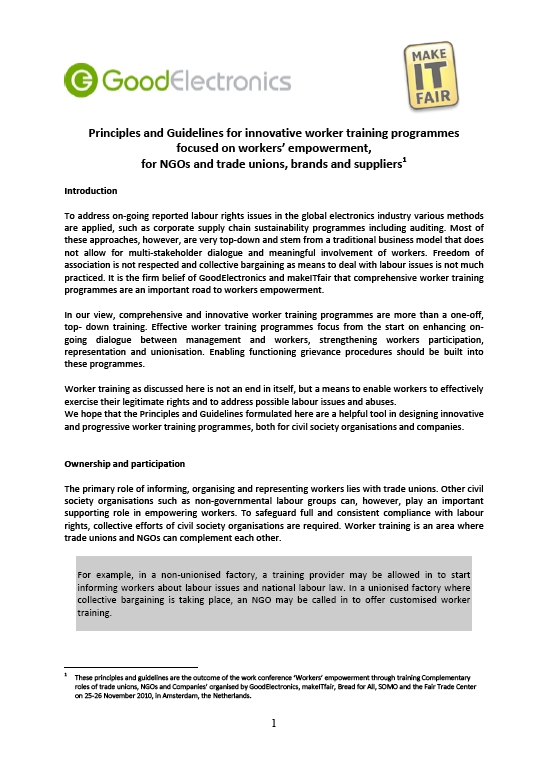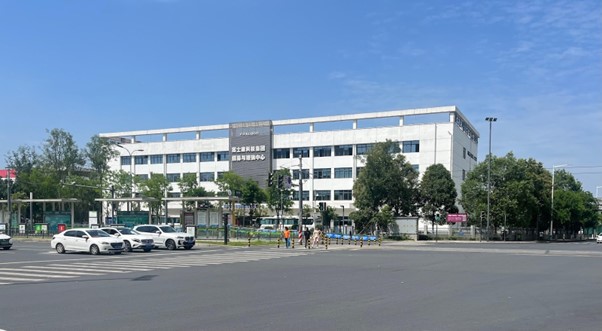To address on-going reported labour rights issues in the global electronics industry various methods are applied, such as corporate supply chain sustainability programmes including auditing. Most of these approaches, however, are very top-down and stem from a traditional business model that does not allow for multi-stakeholder dialogue and meaningful involvement of workers. Freedom of association is not respected and collective bargaining as means to deal with labour issues is not much practiced. It is the firm belief of GoodElectronics and makeITfair that comprehensive worker training programmes are an important road to workers empowerment.
read more lessrelated content
Historic strike at SAMSUNG
The largest union at Samsung Electronics has launched an indefinite strike following failed negotiations over pay and working conditions. Initially planned as a three-day strike by 6,500 workers, it has expanded as management remained silent….
Chain of Consequences: How Chinese Workers Pay for Supply Chain De-risking
SOMO and the China Labour Bulletin have released a report titled ‘Chain of Consequences: How Chinese Workers Pay for Supply Chain De-risking.’ The report details how apparel and electronics brands are relocating production away from…
GoodElectronics’s input for the Special Rapporteur: Gender and Toxic
India’s iPhone factory is keeping women workers isolated
This long read by Johanna Deeksha shows how in India’s iPhone factory, women workers are isolated through restrictive housing in hostels, raising concerns about their working conditions. Managed by Foxconn in Tamil Nadu, this practice…
Ratification of ILO C87 anticipated in Vietnam
Vietnam plans to ratify the Convention No. 87 of the International Labour Organisation (ILO) concerning Freedom of Association and Protection of the Right to Organise, a move aimed at reducing trade disputes risks, according to…
Workers establish first-of-its-kind integrated labour union in Samsung
The inaugural ceremony for the first integrated labour union representing four Samsung companies, took place in Seoul on Monday. In the article published in The Korea Herald, Samsung Group United Union with approximately 15,800 members,…
Indonesian unions demand investigation of ITSS furnace explosion
Here is a link to IndustriALL’s statement on the deadly explosion at PT Indonesia Tsingshan Stainless Steel (ITSS), a company based in the Indonesia Morowali Industrial Park (IMIP) in Central Sulawesi. The explosion, which happened…
Labor Conditions In China’s Consumer Electronics Sector
This report by China Labor Watch highlights severe labor conditions in China’s consumer electronics sector. The study, based on workers’ testimonies and on-site data, reveals systemic issues like illegal intern usage, hiring discrimination, and workplace…
Debt Bondage in Space, and Taiwan
Debt bondage is prevalent among migrant workers in Taiwanese firms supplying global satellite, electronics, and automotive industries. This article by Peter Bentsen shows that major corporations like SpaceX and HughesNet sourced equipment from suppliers like…











